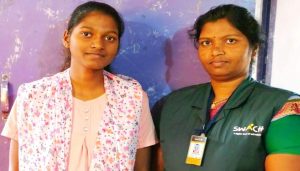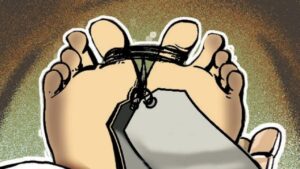Oyster & Pearl Hospitals opens Pune’s first Bedwetting Clinic at ONP Tulip Hospital
May 09 2016, Pune: Oyster & Pearl Hospital proudly announced the opening of the first Bedwetting clinic for children in Pune, at ONP Tulip Hospital, on 9th May, 2016. The clinic was inaugurated by Dr. Amita Phadnis, HOD Pediatrics & Neonatology, Oyster & Pearl Hospitals at the hospital premises, located at Gokhale Nagar,
This clinic is the first of its kind and will be dedicated exclusively for bedwetting related issues. The Bedwetting Clinic program involves an initial meeting of the Doctor with the child and his/her parents in order to obtain a comprehensive history and evaluation of the bedwetting problem, explanation of the nature of bedwetting followed by treatment modalities and comprehensive recording schedule to check and monitor progress.
“Bedwetting in children is not a case of toilet-training gone bad. It’s often just a normal part of a child’s development. It is a fairly common problem and more importantly, often unattended and untreated, because of lack of awareness. It is involuntary, so it doesn’t make sense to punish or scold your child for wetting the bed or reward him or her for staying dry. Instead, praise your child for following the bedtime routine or help clean up after the mess”, explains Dr. Amita Phadnis, who is spearheading this clinic along with a team of experts.
Bedwetting, in India occurs in 4-14% of all school going children. This is often a source of psychological issues, such as anxiety, depression and loss of self esteem in children. These children are often laughed at by siblings and other relatives and also receive a lot of scolding from close relatives. They often are ashamed to go and stay with a relative or friend’s house and this also causes turmoil
An insight on bedwetting:
Bed wetting, also known as ‘nocturnal enuresis’ or ‘nighttime incontinence’ is an uncontrollable leakage of urine in children, in varying amounts while asleep.
This condition concerns approximately 15-20 % of children who are 5 years of age, 10% when they are 7 years of age and 8% at age of 9 years, and may have a serious impact on the affected child’s development and behavior, such as loss of self-esteem, social difficulties, cognitive problems, and other psychological problems, as well as on their families. The most common urological problem seen in children is bedwetting during sleep. The estimated figure is of around 80-110 million enuretic children in the world. Enuresis is more common in first born children, more in boys than in girls and is much more if the parents have also had similar problem or if there is a family history. If one parent of such a child has had a similar problem there is a 44 % chance of a child being a bed wetter. If both parents have had this problem then there is 77% chance of children suffering from a similar problem.
Enuresis is considered a disorder only if the child is at least 5 years of age and the problem continues more or less continuously for approximately one year. It is primary enuresis if it has been since birth and child continues to wet bed; if the child has remained dry for more than 6 months and enuresis reoccurs then it is considered secondary.
“Bedwetting is not an issue that can be taken lightly. Apart from commonly faced problem of changing soggy pajamas and wet bed sheets, this needs to be addressed sympathetically because it affects the self-esteem of the child. While sleep bedwetting can be caused by a variety of urological problems, it is very uncommon for child with bedwetting to have any major urinary problem. In our clinic, we find only 1-4% to have any other urinary tract abnormality. While bedwetting can cause some psychological problems in children, however all children with enuresis are psychologically normal. A gradual and positive occurring change can be observed in children who are successfully treated. Therefore, many children need this treatment and success rates are good and it is a very gratifying experience for the child and the parent. It just needs to be treated with understanding and patience”, says Dr. Amita Phadnis.
With reassurance, support and understanding from ONP Tulip, your child can look forward to the dry nights ahead.
Parents may log on to http://onphospital.com/ , the website of Oyster & Pearl Hospitals for more information on the bedwetting clinic or refer to the website http://drydawn.com to get detailed information on bedwetting.





